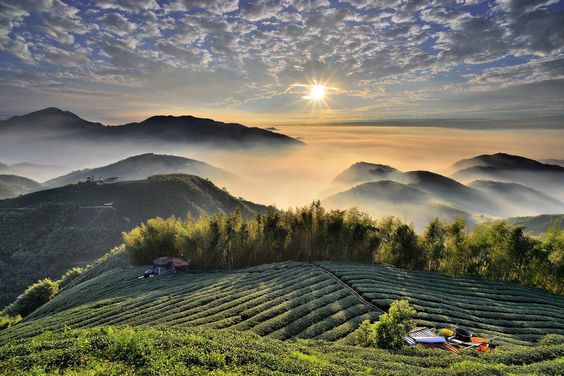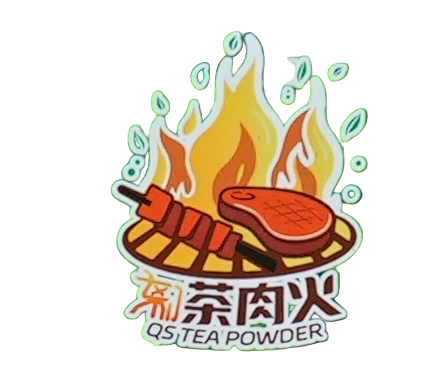The efficacy of Taiping Houkui
1. Excitatory effect: the caffeine of tea can excite the central nervous system, help people cheer up, improve thinking, eliminate fatigue, and improve work efficiency.
2. Diuretic effect: caffeine and theophylline in tea have a diuretic effect, used in the treatment of edema, and water retention tumors. The use of black tea sugar water detoxification, and diuretic effect can treat acute jaundice hepatitis.
3. Strong cardiac antispasmodic effect: caffeine has a strong cardiac, antispasmodic, relaxation of smooth muscle effect, can lift the bronchial spasm, promote blood circulation, is the treatment of bronchial asthma, cough phlegm, myocardial infarction, a good adjuvant drug.
4. Inhibit the role of atherosclerosis: tea polyphenols and vitamin C in tea have blood circulation to prevent the role of atherosclerosis. So regular tea drinkers, hypertension and coronary heart disease incidence is lower.
5. Antibacterial, antimicrobial effect: tea in the tea polyphenols and tannins act on bacteria, can coagulate bacterial proteins, and will kill bacteria. Can be used to treat intestinal diseases, such as cholera, typhoid fever, dysentery, enteritis, and so on. Skin sores, ulcers pus, trauma broken skin, rinse the affected area with strong tea, anti-inflammatory and bactericidal effect. Oral inflammation, ulcers, and sore throat, with tea to treat, also have a certain effect.
6. Weight loss: tea caffeine, inositol, folic acid, pantothenic acid aromatic substances, and other compounds, can regulate fat metabolism, especially oolong tea has a good decomposition of protein and fat. Tea polyphenols and vitamin C can reduce cholesterol and blood lipids, so tea can lose weight.
7. Anti-caries effect: tea contains fluorine, fluoride ions, and calcium teeth have a great affinity, and can become more insoluble in the acid ‘fluorapatite’, like the teeth plus a protective layer, which improves the teeth' acid resistance to caries.
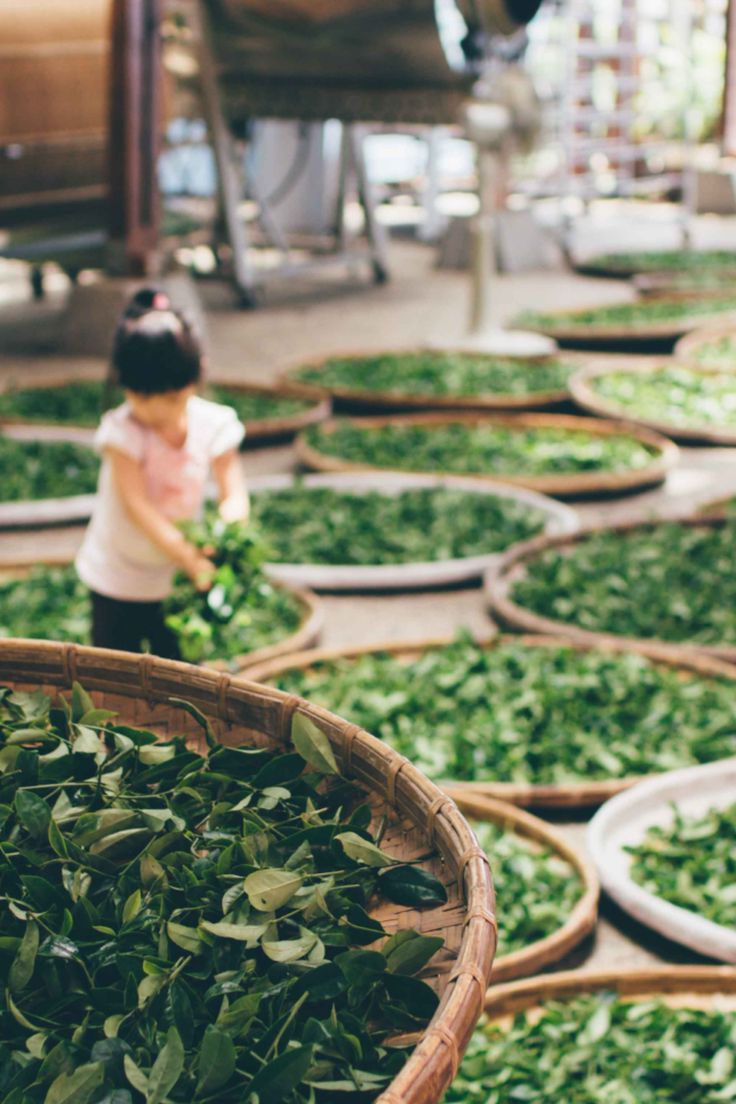
8. Inhibit the role of cancer cells: It is reported that the flavonoids in tea have different degrees of in vitro anticancer effect, the role of the stronger ones are ponceau alkaloids, mulberry pigments, and catechins.
Storage Methods
1. Lime Preservation Method: Lime can absorb the moisture around Taipingchukui, which can extend the shelf life of Taipingchukui. When using this method, you can find a pottery altar with a small mouth and waist that will not leak as a container. As for quicklime, the general food bag will bring a small packet of desiccant, the main component of the desiccant is quicklime, put these desiccants with cotton cloth wrapped in the tea can.
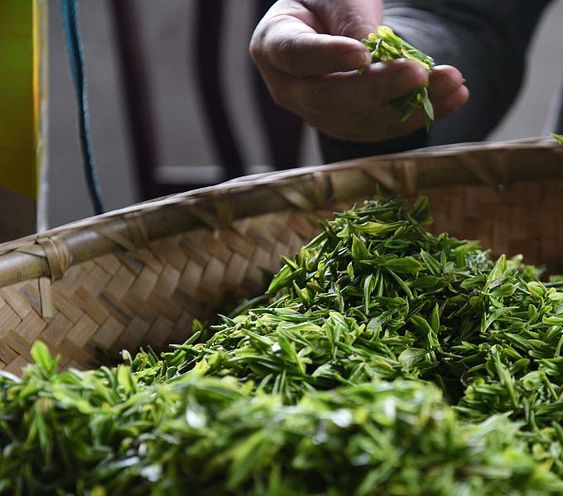
2. Refrigerator preservation method: Before putting the tea into the refrigerator, put the tea in a dry, odorless, and sealable container, and then put the tea into the refrigerator's freezer, which is preferably set at a temperature of less than 5°C. If the tea is intended to be consumed within six months, the temperature should be set at -10°C to -18°C to save electricity. If the tea is intended to be consumed within half a year, the temperature should be controlled at 0-5℃ to save electricity; if it is intended to be kept for a long time, the temperature of the freezer should be adjusted to -10℃ to -18℃. And when using the refrigerator for preservation, try to store it separately from other foods.
General family preservation of Taiping hou Kui is used in these two methods, both methods can be effective in preserving Taiping hou Kui, and also useful in extending the shelf life of Taiping hou Kui. However, Tai Ping Hou Kui is not the same kind of tea as Puerh, so the longer you keep it, the lighter the flavor of the tea will be. It is generally recommended to keep Tai Ping Hou Kui tea for two years.
Honors Received by Taiping Houkui
1912, Liu Jingzhi (1880-1965), a Taiping tea merchant, recommended and purchased 2 kilograms of Taiping hou Kui tea for display in the Nanjing Nanyang persuasion venue and the Ministry of Agriculture and Commerce, and was awarded a superior prize.
In 1915, the United States celebrated the opening of the Panama Canal by hosting the Panama Universal Commodities Exposition on an unprecedented scale, and the Chinese tea sent to the exhibition of Taiping hou Kui was evaluated several times and finally approved by the Panamanian government. Hou Kui after several reviews, and finally with its excellent quality conquered the judges, the crown over the group, stood out, won the Gold Medal won the First Prize Medal and certificate.
In 1916, Taiping Hou Kui tea was awarded the gold medal and superior prize at the tea display competition in Nanjing, Jiangsu Province. Since then, Taiping Houkui tea has gradually become famous at home and abroad.
In the 1930s, Taiping Houkui was exhibited in Bolivia and other countries.
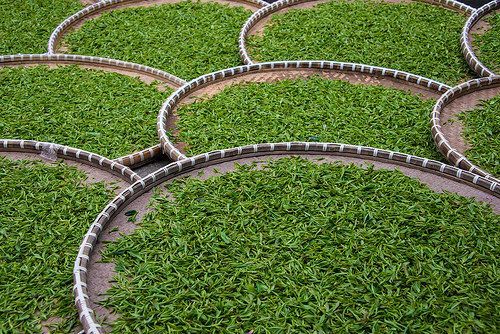
In 1955, Taiping Houkui was named one of the top ten famous teas in China.
In 1977, Taiping Houkui was awarded the Gold Medal and received the Medal of Honour.
In 1979, China's export trade won the five continents' merchants praise. 1982 June, in Changsha National Tea Selection as the national famous tea. 1983, by the Ministry of Foreign Trade as a high-quality products certificate of honor. 1986 May, in Fuzhou National Tea Selection as the national famous tea. 1988, the first China Food Expo, the selection of famous, special, excellent, and new products were awarded the Gold Medal.
In September 1990, Taiping Hou Kui Tea was awarded the National Famous Tea at the National Famous Tea Selection of Xinyang City, Henan Province, and in December 1990, Taiping Hou Kui Tea was awarded the High-Quality Food of Anhui Province, and in November 1997, Taiping Hou Kui Tea was awarded the title of the first batch of Famous Agricultural Products by the Anhui Provincial Government, and it was sent to President Vladimir Putin as a State Gift in March 2007.
In 1999, Premier Zhu Rongji entrusted Premier Zhu to bring the gift of Taiping Hou Kui Tea to his teacher, Candy Gu, when he was studying at Shanghai Jiaotong University. On 18 May 2001, the General Secretary of the CPC Central Committee, President of the State Council, and Chairman of the Central Military Commission, Jiang Zemin inspected the Huangshan Mountain, and drank Taiping Hou Kui Tea praising the tea as ‘Good Tea’.
In 2002, May, it won the Gold Medal of China (Wuhu) International Tea Expo and was successfully auctioned off at 70000 yuan for 500 grams. In 2004, the International Tea Expo won the ‘green tea tea king’ title, and 50 grams of 21,000 yuan price auction success.
In 2005, in China Huangshan (Shanghai) Tea Fair was awarded a special gold medal, 100 grams of Taiping Hou Kui tea in the auction hit 159,000 yuan bidding price, stirring up the tea industry. 26 March 2007, the General Secretary of the Communist Party of China Central Committee, the President of the State Council, and the Central Military Commission Chairman Hu Jintao attended the ‘China's National Year’ exhibition in Russia, personally attended the ‘China's National Year’ exhibition in Russia, and the ‘China National Year’ exhibition. The exhibition, personally will be Taiping Hou Kui and Huangshan Mao Feng and other four kinds of Anhui tea as a state gift tea to Russian President Vladimir Putin.
On 25th November 2010, at the 4th Cross-Strait Tea Expo and Wuyi Mountain Tea Festival, ‘Hou Pit Taiping Hou Kui won the ‘Golden Bud Award’ and ‘Top Ten Chinese Green Tea Brands’. Two awards.
In 2012, the Zhejiang University CARD China Agricultural Brand Research Centre and ‘China Tea magazine, China Tea Institute, and China Tea Network jointly assessed the ‘2012 China Tea Regional Public Brand Value assessment results were unveiled, the city of Huangshan, Anhui Province, ‘Taiping Houkui The brand value of ‘Taiping Hou Kui’ tea in Huangshan City, Anhui Province, reached 1.254 billion yuan.
On 15 November 2019, Taiping Hou Kui was selected for China's agricultural brand catalog.
On 27 July 2020, Taiping Huikui tea was selected for the second list of geographical indications for protection in China and Europe.
In November 2022, it was selected for the Representative List of Intangible Heritage of Humanity.
The story behind Taiping Houkui
‘Taiping Hou Kui’ is produced in Hou Keng, monkey Gang, and Yan Village in Taiping County, at the northern foot of the Huangshan Mountains in China. Local legend has it that in ancient times, when a mountain man was picking tea, he suddenly smelled a refreshing fragrance. When he looked around, there was nothing, but when he searched carefully, it turned out that there were a few clumps of green wild tea growing between the rocks of the steep mountains. But no vine can climb, no way to follow, only to leave. But he could not forget the tender leaves and fragrance. Later, he trained a few monkeys, every tea picking season, he gave the monkeys put on a cloth cover, and let it on behalf of people to climb and pick. People tasted this tea and called it ‘tea in the Quei’ because this tea is monkey picking, the descendants will simply give the name ‘Monkey Kui’.
Legend has it that the Monkey Pit in Taiping County, Anhui Province, produces a kind of Monkey Kui tea. Legend has it that in ancient times, a pair of white-haired monkeys lived in Huangshan Mountain and gave birth to a small hairy monkey. One day, the small hairy monkey went out to play alone and came to Taiping County, where it encountered a heavy fog lost its way, and didn't come back to Huangshan Mountain. The old monkey immediately went out to look for his son. A few days later, due to his eagerness to find his son and overwork, the old monkey fell ill and died in a mountain pit in Taiping County. In the mountain pit lived an old man, picking wild tea and medicinal herbs for a living, he was kind-hearted, and when he found this sick and dead old monkey, he buried him on a hillock and moved a few wild teas and mountain flowers to be planted beside the old monkey's grave, and was just about to leave, when he suddenly heard the voice of a talker: ‘Old man, you did a good deed for me, and I'll surely be thankful to you.’ But no one was to be seen, and this matter was not on the old man's mind.
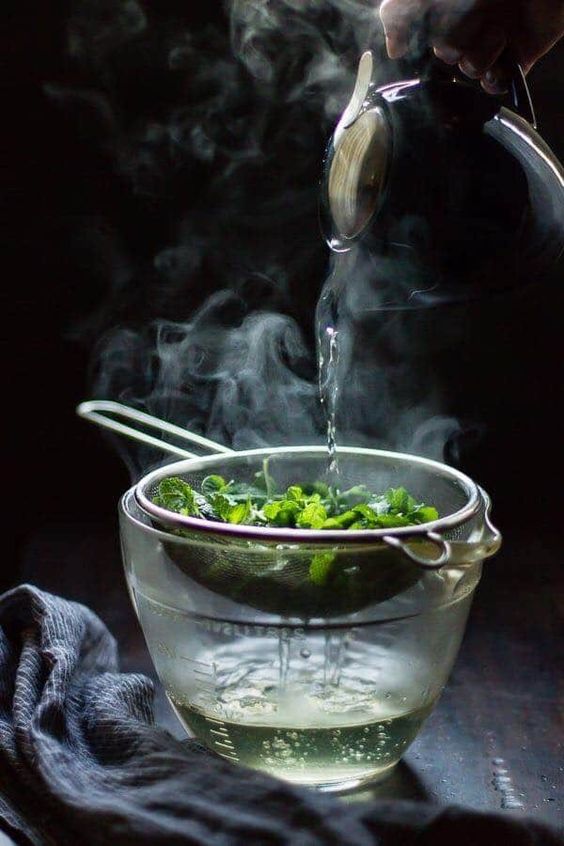
The next spring, the old man again came to the hillock to pick wild tea and found that the whole hillock was full of green tea trees. The old man is wondering, suddenly hearing someone say to him: ‘These tea trees are my gift to you, if you cultivate them, the future will not worry about food and clothing.’ Only then did the old man realize that these tea trees were given to him by the God Monkey. From then on, the old man had a good piece of tea mountain, and no longer needed to cross the mountains to pick wild tea. To commemorate the monkey, the old man called this hillock as monkey hillock, the pit where he lived as monkey pit, and the tea picked from the monkey hillock is called monkey tea. Due to the superior quality of Monkey Tea, the tea was called Taiping Monkey Kui.
